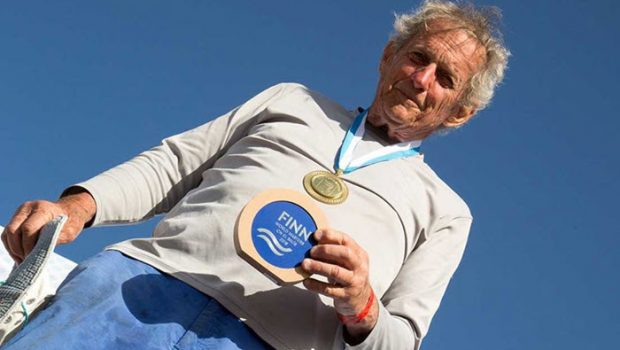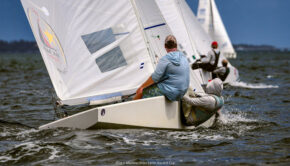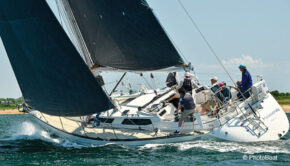How culture defines participation
Published on September 22nd, 2020
As the Tokyo 2020 Olympics will be the final occasion for a Class that’s been present at the Games since 1952, that shift impacts only the aspiring youth. For guys like Gus Miller (USA), the roots for the Finn Class run much deeper.
Miller (above) is a Finn Class legend, having set a high standard in both competition and contribution. Now 85 years, he was ready for the 2020 Finn World Masters before the coronavirus cancelled the Dutch event.
How do you explain why the Finn World Masters routinely attracts 300+ sailors? Here’s how Gus views the Finn culture:
Without a lot of friends you cannot have good racing, nor can you have good practice, nor can you have an intensely enjoyable time that leaves your life richer.
Finn sailors share the knowledge that even if you master yourself, you can never master the boat – it is too subtle to accomplish this.
Finn sailors try to outwork each other, destroy the others on the water with that hard work, then come ashore in sharing the resulting intense adversity. This generates a kind of love that then gets shared with newcomers who will receive lots of help in figuring things out.
The impact of this culture is what brings hundreds back to the masters’ regattas.









 We’ll keep your information safe.
We’ll keep your information safe.